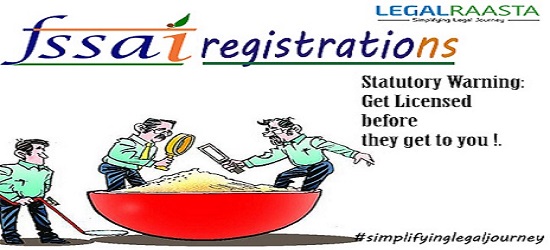The food and healthcare industry in India is governed by certain rules and regulations pertaining to food, medical equipment, drugs or medicines used. The importance of these rules and regulations lie in the fact that they ensure that malpractices are kept at bay. However, the role of FSSAI is broader than most of these regulatory authorities since it deals with food we eat every day and the health supplements, nutraceuticals.
Role of FSSAI
This autonomous body deals with food safety and its regulation thereby playing a very important role in protecting public health and promoting good and healthy living. It aims to:
- Lay scientific standards for edible material quality,
- Laying down laws to regulate:
- The manufacture of edible material
- Its subsequent storage,
- Distribution and sale of food
These rules pertain to both food manufactured indigenously and imported from other countries.
- Ensuring that food is safe for consumption.
The formation of the FSSAI brought many previous acts under the same umbrella thereby broadening its role and scope.
Importance of FSSAI compliance
Today FSSAI compliance has become mandatory for any individual or company which wants to operate in the food industry or in anything related to food. This compliance can be obtained by following 5 steps given below:
- Nutritional Label: The nutritional label which states the nutritional value, health and functional claims, etc. of the food/health supplements contained in the package is a mandatory feature. Hence nutritional parameters with regards to the calories of proteins, fats, carbohydrates, sugar, energy etc., present need to be specifically mentioned on the label.
- Shelf life: The shelf life refers to the date after which the concerned edible product becomes unfit for consumption. This is also known as the expiry date and every food product package needs to have the same mentioned on its label prominently with necessary declarations.
- GAP audit: This audit is dome by FSSAI officials and involves:
Visual inspection of the food handling facilities, including the storage, processing, serving areas,
- Identification of the applicable FSSAI standards and inspection for their compliance
- Identification of possible GAPs and recommendations
- Ensuring compliance of the food handling processes and its application for the FSSAI standards.
- Food safety plan: This involves an audit to understand thoroughly the understanding of the:
- Food handling process,
- Food management system and
- Designing the comprehensive food safety manual.
The manual designing is done on the basis of the applicable FSSAI standards.
- Water testing: This is done to ensure that the water used does not contaminate the food prepared.
Importance of a license consultant
Finding out the FSSAI rules and regulations applicable and ensuring their compliance can be a tedious process. In fact it would not be wrong to say that understanding the compliances required too can be a problem. Hence getting in touch with a FSSAI license consultant becomes mandatory as they are able to:
- Guide a person through the whole process,
- Ensure the paperwork is in order,
- Identify the applicable standards,
- Check to see if any lacuna is present and
- Help the business to obtain the licence in exchange for a fee.
Standards set by FSSAI for different categories of food are done with the intention of ensuring that the people of India are able to get good and healthy food. It is thus mandatory for the same to be followed especially if one is in the food business.










